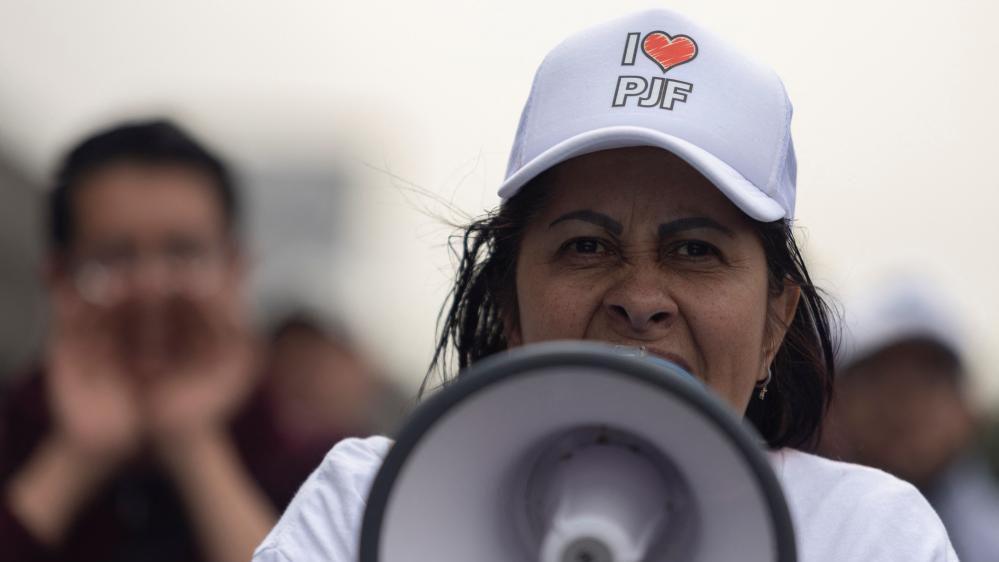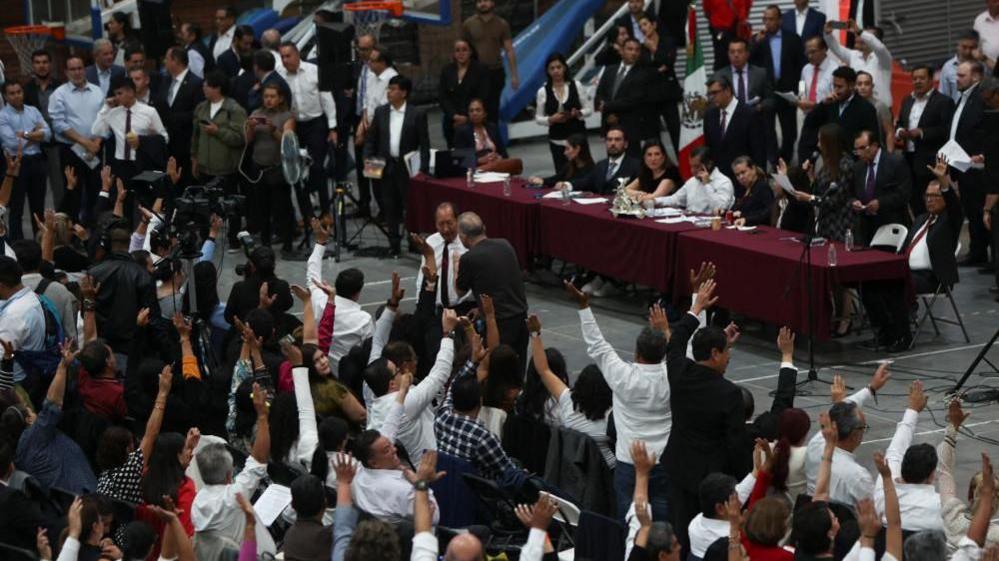Controversial Mexican judicial reform passes key hurdle

Members of Mexico's federal judiciary have been protesting against the changes
- Published
A controversial bill which will change the way judges are chosen in Mexico has been approved by the lower chamber on Wednesday and will now go to the Senate, where it is also expected to pass.
Proponents of the bill, among them President Andrés Manuel López Obrador, argue it would help hold judges accountable but its critics say it erodes Mexico's system of checks and balances.
The judicial reform has triggered strikes by judicial workers and demonstrations in several cities across the country.
Supreme Court justices are the latest to have stopped work in protest at the planned measures, which would see magistrates and judges chosen by popular vote.
The Chamber of Deputies overwhelmingly approved the reform with 359 votes in favour and 135 against after a session lasting more than 12 hours.
The lawmakers were meeting in a sports hall after demonstrators had blocked the entrance of the legislative palace.

Lawmakers gathered at a sports complex in Mexico City
Despite the protests, the governing Morena party quickly pushed the bill through the lower house, where it holds the two-thirds majority necessary to make constitutional changes.
It will now be debated in the Senate, where Morena is just one vote shy of a two-thirds majority.
President López Obrador is keen to see the judicial reform approved before the end of his term on 30 September.
During his six years in office, the president has been particularly critical of the Supreme Court, after it blocked some of his proposed changes in the energy and security sectors.
His Morena party and its presidential candidate, Claudia Sheinbaum, won by a landslide in the general election held in June and Ms Sheinbaum backs the judicial reform.
Mr López Obrador argues that his party's electoral success demonstrates that Mexicans support his proposed judicial overhaul.
He has long lobbied for a reform of the judiciary, arguing the current system is corrupt and inefficient.
Supreme Court justices are currently nominated by the president and then approved by senators.
Under the new system, justices - including those on the Supreme Court - will have to stand for election, to be chosen by popular vote.
Mr López Obrador argues that having to stand for election will make them more accountable to the Mexican voters but critics say it could open them up to influence from powerful local figures, including those linked to organised crime.
Those opposed to the reform also say that it does not address many of the key problems facing Mexico's judicial system, such as high levels of impunity and chronic underfunding.
Among those who have spoken out against it is the US Ambassador to Mexico, Ken Salazar, who said that the "popular direct election of judges is a major risk to the functioning of Mexico's democracy".
His comments were echoed by the Canadian ambassador, who said that Canadian investors had expressed concern over the proposed changes.
"They [the investors] want stability, that want a judicial system that works if there are problems," Ambassador Graeme Clark said.
President López Obrador bristled at the remarks and "paused" relations with the countries.
"They have to learn to respect Mexico's sovereignty," he said.
Mexico elects Claudia Sheinbaum as first female president
- Published3 June 2024
Mexico's first female president breaks political glass ceiling
- Published3 June 2024